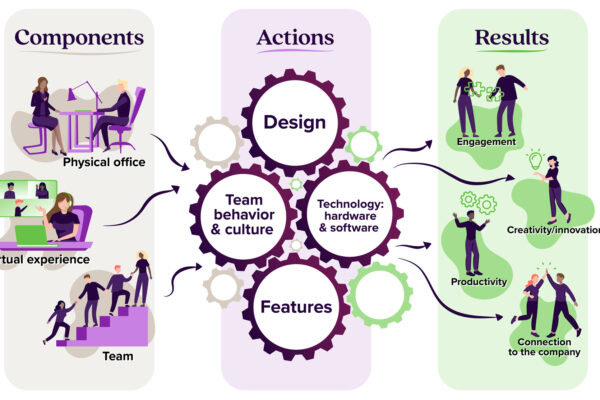
The role of marketing and reputation in recruiting
It’s a job-seekers market right now, and companies in every sector are aggressively recruiting talented employees—especially for engineers and scientists whose skills are in high demand. Some of these companies are turning to marketing to establish a competitive advantage in recruiting.
From company perks (work from home!) to company fun (brewery Fridays!) to compensation and benefits (stay healthy!), recruiters are talking up everything when they get a hot lead. Maybe your company advertises your prowess in the market, or your commitment to a social or environmental issue in order to woo potential candidates and establish name recognition.
With all these options, why is marketing involved?
Research by LinkedIn showed that more than 75% of job seekers research a company’s reputation before applying.
Research published in the MIT Sloan Management Review showed that corporate reputation is the primary consideration for potential employees.
So what does it really take to snag and hang onto those desirable employees? And why is it an issue for marketing? There are some definite truths, and a few myths floating around.
Impact of reputation on recruiting
A study published in the MIT Sloan Management Review tested the impact of three aspects of a company’s reputation on recruiting:
1. Corporate reputation
According to the study, corporate reputation is the overall recognition and respect in which the organization is held. Note: reputation (what people think of you) is different from brand, which is the image you project to generate the reputation you desire. The two are, however, closely related.
2. Workplace reputation
Workplace reputation, which is sometimes referred to as “employer branding” refers to the image of an organization as a “great place to work” in the mind of current employees and stakeholders. Nurturing an employer brand goes hand in hand with recruiting and is considered by many as an important way to attract, engage, and retain the best people, the latter being crucial — 95% of hiring is done to fill existing positions, most of which are vacant because of voluntary turnover.
3. Reputation for social responsibility
Recently, the idea has emerged that emphasizing an organization’s reputation for social responsibility—and not just a company’s overall reputation or its reputation as a good employer—is a powerful incentive to attract and engage talent.
“People are hungry for the opportunity to work professionally in a way that is consistent with building a sustainable world instead of one that undermines it,” says John Sterman, a professor at the MIT Sloan School of Management and director of MIT’s System Dynamics Group.
What potential employees really care about
However, results from the MIT/Sloan study suggested that neither reputation for social responsibility nor employer reputation is as important as the more utilitarian concerns of a potential employee—salary, advancement opportunities, time demands, and salary structures—which are related to corporate reputation in the marketplace.
According to the study’s authors, “an organization’s reputation provides source credibility to many of the features offered in a job contract. Thus, when organizations compete for talented employees by offering similar job features, those with “good” reputations should have a better chance of attracting these people.”
Employees want to work for good employers, but they don’t need their employers to be leaders in corporate social responsibility. For these individuals, it is more about career trajectory, meaningful, challenging work, and a return on education investment.
In short: pay well and nurture your corporate reputation. Conveniently, investment in your corporate reputation will help many other aspects of your business also.
A matter for marketing
Although marketing can’t help you with salaries (except when marketing research suggests that cutting them may negatively impact your reputation), corporate reputation and brand is solidly within marketing’s domain.
So how do you boost your corporate brand? That’s a topic for another post (or hundred), starting with this one.
Does your corporate brand need some polishing to maximize your recruiting efforts? We’d love to talk.


